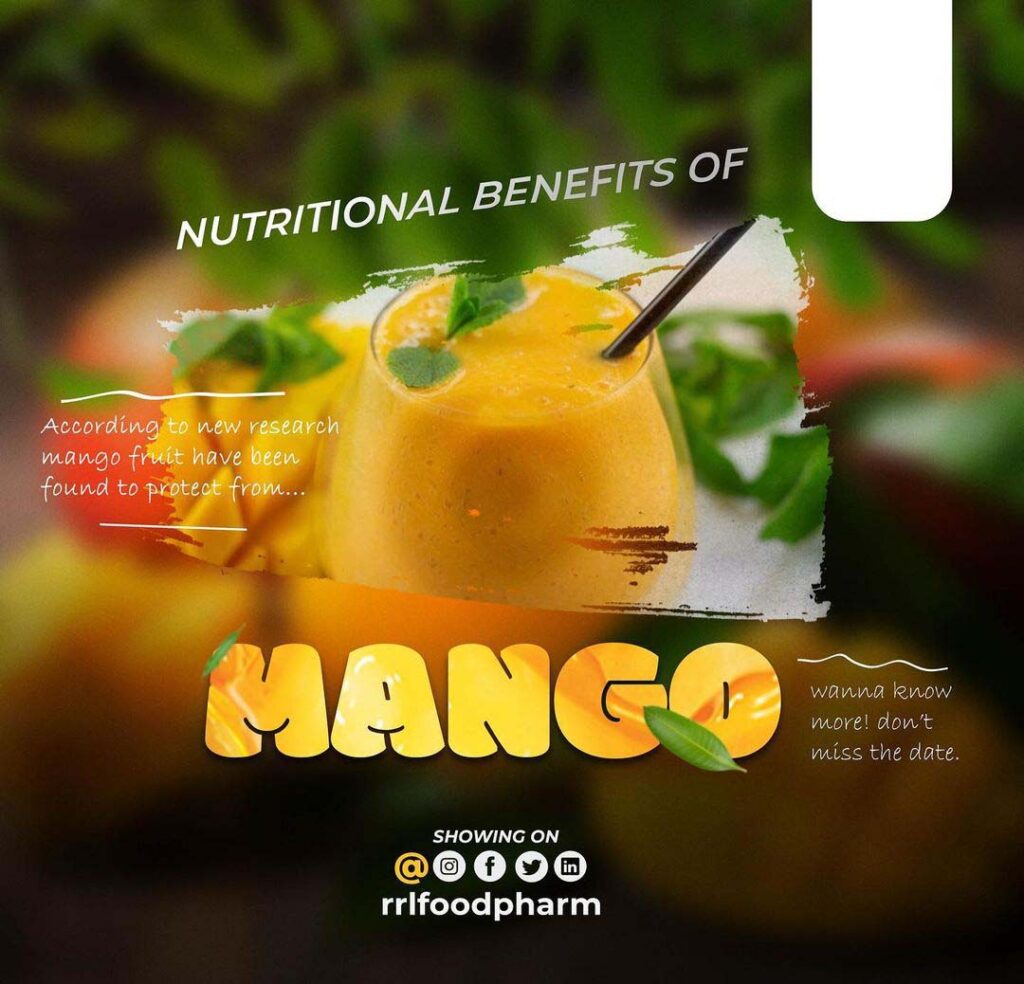
Mango: A Royal Review
Known as the king of fruits, Mango (Mangifera indica L.), has a delicious taste (delightfully blended sweetness and acidity) and aroma, and high nutritional value. The fruit belongs to the Anacardiaceae family and has three main parts: pulp, peel, and kernel.
Nutritional Benefits
- Mango pulp is a source of a variety of reducing sugars, protein, lipids, amino acids, aromatic compounds, and functional compounds, such as pectin, vitamins, anthocyanins, and polyphenols.
- Functional compounds in the peel, including protocatechuic acids, mangiferin and B-carotene.Mango contains a blend of sugars, acids,antioxidants (as ascorbic acid), vitamins B,C, E,K and polyphenols (carotene, as vitamin A).
- The principal carbohydrates that are used are different in green unripe and matured ripe mango. Starch is the principal carbohydrate in green mango; during maturation, it converts to reducing sugars (sucrose, glucose, and fructose). Along with these carbohydrates, small quantities of cellulose, hemicellulose, and pectin are present in ripe mango.
- Unripe mango tastes sour because of the presence of different acids, such as citric acid, malic acid, oxalic acid, succinic, and other organic acids, whereas the sweet taste of the ripened fruit is due to the blending of reducing sugar and the main acid source, malic acid.
- The pulp is also a good source of micronutrients, including trace elements such as, selenium, copper, calcium, phosphorus, iron, and vitamins (vitamins C and A). Consumption of mango pulp provides high energy: 60–190 Kcal from 100g of fresh pulp.
Therapeutic benefits
- Mangoes are known for their antimicrobial, anti-diabetic, anti- aging, anti-inflammatory, and anti-carcinogenic properties.
- High concentrations of B-carotene and other phytochemicals in mangoes can prevent leukaemia and progression of prostate, breast, and colon cancers.
- The World Health Organization (WHO) recommends the daily consumption of 400 g of fruits and vegetables, as their nutrients could prevent chronic diseases, such as heart diseases, cancer, diabetes, and obesity.
Conclusion
Mango fruits are good sources of nutrients and contain good phytochemicals and antioxidants. They therefore have good nutritional and therapeutic benefits which can help keep diseases away.
References
- Nutritional Composition and Bioactive Compounds in Three Different Parts of Mango Fruit. Available from: https://www.researchgate.net/publication/348580445_Nutritional_Composition_and_Bioactive_Compounds_in_Three_Different_Parts_of_Mango_Fruit [accessed Mar 07 2022].
